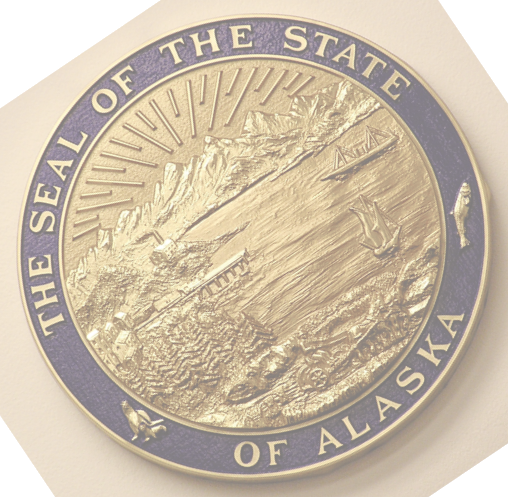Since my last newsletter, I have introduced three new bills in the legislature.
On February 5th, I introduced Senate Bill 159 regarding the AirCare membership program. Since January 2009, Airlift Northwest, the Seattle based provider of lifesaving air medical transport services, has offered the popular AirCare membership program to residents of Southeast Alaska. Approximately 2,000 Southeast households are enrolled in the program. Air medical transportation is expensive and insurance may not cover all the costs. The purpose of the AirCare program is to cover all out-of-pocket expenses such as deductibles and coinsurance amounts that may not be covered by the primary payer. As an AirCare member, only your insurance company receives a bill. Airlift Northwest is secondary to all payers and works directly with your insurance company for claims processing. The AirCare program directly helps fund Airlift Northwest so they can transport critically ill or injured patients to hospitals with levels of care not locally available.
Since its inception, the AirCare program was offered to Alaskans under a regulatory exemption it received from the Alaska Division of Insurance. However, after an organizational restructuring, the Division of Insurance deemed the program no longer exempt from insurance regulation as stated in AS 21.87.010 under which Airlift Northwest was providing the program. As a result, the Division of Insurance ordered Airlift Northwest to cease enrolling new members. Airlift Northwest is allowed to honor their existing memberships but is not allowed to renew expired memberships. If Airlift Northwest wants to continue offering the AirCare program, then the program must either be fully insured by a health insurer authorized by Alaska or Airlift Northwest must obtain a certificate of authority pursuant to AS 21.09 to transact health insurance in Alaska. Since Airlift Northwest operates under the umbrella of University of Washington’s medical system, becoming a licensed insurer in Alaska is not an option for them.
Senate Bill 159 will exempt air ambulance services from the state’s insurance code, thereby allowing Airlift Northwest to continue offering the AirCare program to Alaskans. The bill passed the Senate unanimously on February 28th and is now in the House Labor and Commerce Committee where it received its first hearing on March 17th.
The second bill I introduced is Senate Bill 192 which proposes to amend deficiencies in Alaska’s petroleum production tax. The current tax structure, created by the passage of Senate Bill 21 last year, sets a base tax rate of 35% based on a net profit system which is calculated after deducting the cost of royalties, transportation, operating and capital expenses. The producers also receive a tax credit between $1 and $8 paid for each barrel of oil produced. The per barrel tax credit is not contingent on any performance measures. The producers are not required to do anything to receive this credit except pump oil from their existing wells. There is no requirement for expansion, exploration, increased production or capital investment in Alaska. The state is obligated to pay this credit to the producers on a sliding scale which increases as the price of oil decreases. For example, if the price of oil is between $140 – $150, the producers receive a tax credit of $1 per barrel. But if the price of oil falls to under $80, the producers receive a tax credit of $8 per barrel.
In FY15, the impact to the state treasury as a result of this per barrel tax credit is estimated to be almost one billion dollars. Senate Bill 192 would reduce that per barrel credit by half so it would start at 50 cents per barrel at high oil prices and cap out at $4 per barrel at low oil prices. This would return almost a half a billion dollars to the state treasury in FY15. Under the current tax regime, the compensation for the value of Alaska’s hydrocarbons is too low compared to similar world class hydrocarbon basins around the world.
Senate Bill 192 would also raise the minimum production tax from 4% of the gross value at the point of production to 15%. As the price of oil goes down and the credits go up, we need a higher minimum tax to protect the state’s share of its resource wealth from our legacy fields on the North Slope.
Senate Bill 192 would establish a more reasonable, balanced and sustainable petroleum production tax for Alaskans. The bill was referred to the Senate Resources Committee where I have requested it be scheduled for a hearing.
Finally, the third bill I recently introduced is Senate Bill 201 regarding criminal trespass. As a landowner, you have the right to regulate activities on your property. However, in Alaska, current state law gives a person the privilege to enter and remain on unimproved or apparently unused land that isn’t posted with “no trespassing” signs. Furthermore, a sign must be placed at each roadway or access point onto the property. Many Alaskans own private property in remote locations with inclement weather. No trespassing signs can be blown down, removed by vandals, or covered by snow. The lack of visible signage should not absolve trespassers of guilt.
Senate Bill 201 would repeal Alaska Statute 11.46.350(b) and (c), thereby removing the requirement that private property be posted in order for criminal trespass laws to be enforced. It should be the responsibility of the individual to know who owns the property that they want to access. Today’s technology allows many options for individuals to identify public and private property boundaries such as topo maps that can be downloaded on a smart phone or GPS. In addition, the public can access maps showing property boundaries from the state Department of Natural Resources, the U.S. Geological Survey, as well as municipal plats available at city hall.

Comments are closed